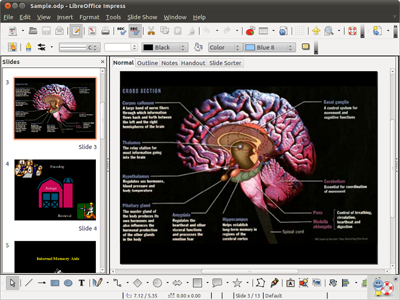Show your love for free software on Valentine’s Day
The whiff of romance is in the air as restaurants, the cards business and florist gird their loins for Valentine’s Day on February 14th.
The Free Software Foundation Europe (FSFE) is asking all free software romantics to do something different on Valentine’s Day: use the day as an opportunity to say “thank you” to one of the dedicated hard-working people in the free software community.

“Every day, we use free software and often take it for granted. We write bug reports, tell others how they should improve their software, or ask them for new features – and often we are not shy about criticising. So, to let the people in Free Software receive a positive feedback at least once a year, there is the ‘I love Free Software day’.” says Matthias Kirschner, who initiated the FSFE’s #ilovefs campaign.
For the”I love Free Software Day” the FSFE has several suggestions for showing your love to the people behind Free Software, including:
- write an e-mail/letter, (micro-)blog post, to contributors expressing how much you like what they are doing;
- buying your favourite contributor a drink. Or buy someone else a drink and while enjoying it, tell her/him about your favourite free software application;
- give a contributor a hug (ask for permission first!);
- take a picture of yourself showing your feelings for free software and post them online;
- making a donation to the FSFE or another free software initiative to express your gratitude. They depend on your contributions to continue their work;
Finally, you can help spread the love by sharing the campaign banners, by e-mail, (micro)blog or by spreading through any social network using the hashtag #ilovefs.
“We want you to help us, to make this day the day where everybody says ‘thank you’ to the people behind free software”, adds Matthias Kirschner.

 One of the major developments of recent years has been the growth in mobile internet-capable devices and a new
One of the major developments of recent years has been the growth in mobile internet-capable devices and a new 


 While the UK government is content with ensuring UK ‘broadband’ customers are guaranteed a modest 2 MB/s over their domestic connections, news arrives of blistering data transmission rates being achieved in Germany.
While the UK government is content with ensuring UK ‘broadband’ customers are guaranteed a modest 2 MB/s over their domestic connections, news arrives of blistering data transmission rates being achieved in Germany.


 Next Wednesday, 23rd January, has been designated CiviDay 2013 and 2 meet-ups have been arranged in London and Bristol respectively for users of
Next Wednesday, 23rd January, has been designated CiviDay 2013 and 2 meet-ups have been arranged in London and Bristol respectively for users of 
 According to our site statistics, nearly 41% of you out there are reading this article on some flavour of Microsoft Windows. In addition, 22% are using various versions of Microsoft’s Internet Explorer web browser. And it’s to you, our IE users, to whom this message is addressed: use a better browser, preferably an open source one!
According to our site statistics, nearly 41% of you out there are reading this article on some flavour of Microsoft Windows. In addition, 22% are using various versions of Microsoft’s Internet Explorer web browser. And it’s to you, our IE users, to whom this message is addressed: use a better browser, preferably an open source one!
 There’s an interesting sounding free talk coming up later this week on 10th January.
There’s an interesting sounding free talk coming up later this week on 10th January.